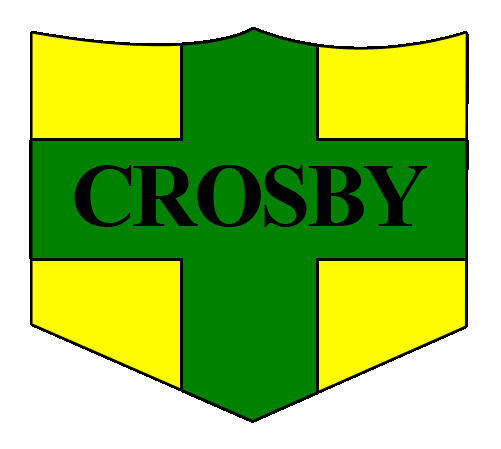What is the Foundation stage?
The Foundation Stage is the period of education from birth to 5 years. In Crosby Primary School our Foundation Stage consists of a nursery and 3 reception classes. The nursery is called the Ladybird class. Bumblebee Caterpillar and Dragonfly are the reception classes.
Foundation 2 do PE on Monday morning and on Thursday.
Our Support Staff
Mrs Staples (SEND TA3)
Ladybird
Miss Martin TA3, Mrs White TA3, Mrs Akthar (TA1), Mrs Dhin (TA1), Mrs Leadenham (TA1) and Mrs Khan (TA1).
Caterpillar
Mrs Hicks (TA2), Miss Picksley (TA1), Mrs Reid (TA1) and Mrs Zabawska (TA1).
Dragonfly
Mrs Smales (TA2), Miss Picksley (TA1), Mrs Reid (TA1) and Mrs Zabawska (TA1).
Bumblebee
Miss Bright (TA2), Miss Picksley (TA1), Mrs Reid (TA1) and Mrs Zabawska (TA1)
Foundation Stage Curriculum
Our EYFS curriculum aims to work with parents and carers to enable our children to be:
Competent and creative learners; who are curious about the world around them.
Secure and confident; who enjoy coming to school and learning new skills and knowledge building on their existing learning.
Skillful communicators; who connect with others through language and play, ensuring that they play in a vocabulary rich environment.
Our Bumblebee and Dragonfly children will receive the teaching of early reading through systematic, synthetic phonics to learn to read words and simple sentences accurately. We use the Little Wandle Letters and Sounds Programme.
Communication & Language
Involves giving children opportunities to experience a rich language environment; to develop their confidence and skills in expressing themselves; and to speak and listen in a range of situations.
Personal, Social & Emotional Development
Involves providing opportunities for young children to be active and interactive; and to develop their co-ordination, control, and movement. Children must also be helped to understand the importance of physical activity, and to make healthy choices in relation to food.
Physical Development
Involves helping children to develop a positive sense of themselves, and others; to form positive relationships and develop respect for others; to develop social skills and learn how to manage their feelings; to understand appropriate behaviour in groups; and to have confidence in their own abilities.
Literacy
The early teaching of literacy involves encouraging children to link sounds and letters and to begin to read and write. Children are given access to a wide range of reading materials (books, poems, and other written materials) to ignite their interest.
Understanding the World
This involves guiding children to make sense of their physical world and their community through opportunities to explore, observe and find out about people, places, technology and the environment.
Mathematics
The early teaching of mathematics involves providing children with opportunities to develop and improve their skills in counting, understanding and using numbers, subitising, calculating simple addition and subtraction problems; making and creating repeating patterns; and describing shapes, spaces, and measures.
Expressive Arts & Design
This involves enabling children to explore and play with a wide range of media and materials, as well as providing opportunities and encouragement for sharing their thoughts, ideas and feelings through a variety of activities in art, music, movement, dance, role-play, and design and technology.
Impact
- We strive to ensure that our children’s progress across the EYFS curriculum is good from their varied starting points and for children to reach the Early Learning Goals at the end of Reception and to be near National expectations.
- Class teachers use observations to make formative assessments which inform future planning and ensure that all children build on their current knowledge and skills at a good pace.
Useful Links
Tiny Happy People
Little Wandle Phonics support for parents
North Lincolnshire Easy Peasy App
North Lincolnshire Family Hubs
